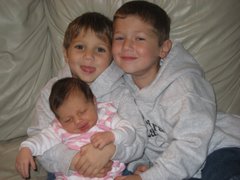Here is the Jefunira Camp Mission Statement:
Jefunira Camp is committed to providing a
premier camp experience by creating a safe and inclusive community where
campers can develop self-esteem, self- confidence and have fun through
non-competitive, non-skill based play.
I believe that summer camp and play in general provide a great foundation for the healthy development of children. Summer camp is a place where children can develop self confidence and more importantly self esteem. We make that a central part of our mission statement.
Below is an article that appears in the January 2014 edition of MetroKids. It speaks nicely to the benefits of attending summer camp.
The Benefits of Summer Camp
The summer camp experience builds confidence and other values that last a lifetime.
BY ELLEN WARREN
Log on to any camp website and you’ll be greeted with countless images of sunny, smiling faces, tangible proof that kids enjoy being at summer camp in any given moment. What you can’t see, however, may be even more important — the intangible benefits of the summer camp experience that youth development experts say can positively impact a child for life.
“Camps prepare kids for success in all walks of life by giving them the opportunity to develop skills and social relationships and work as part of a team, both as a leader and a follower,” says Dave DeLuca, executive director of YMCA Camp Mason, which has operated day and overnight camps in Hardwick, NJ since 1900.
The ongoing value of camp In 2004 the American Camp Association (ACA) published the first-ever national research project on camp benefits, validating long-held beliefs about the positive outcome of the camp experience. Results from 5,000 families and staffers of 80 camps over a four-year period showed that even two weeks at camp led to gains in kids’ positive identity and values, spirituality and social, physical and thinking skills. Seventy-two percent of parents reported, “My child gained self-confidence.” Ninety-two percent of campers said, “Camp made me feel good about myself.”
At Camp Orchard Hill in Dallas, PA, executive director Jim Payne says the Christian day and overnight program seeks to create a quartet of positive outcomes via opportunities to “stimulate [campers’] development; appreciate their natural surroundings and take an active role in environmental stewardship; set goals and challenge their own abilities; and experience living in a community.”
Dragonfly Forest, a traditional camp for children with autism and medical needs in Valley Forge, PA, has measured the growth of 2,500 one-week residential campers in eight areas: exploration, health, responsibility, independence, success, teamwork, confidence and friendship. “We believe that camp is the ‘genie’ that lets these benefits out of the bottle for campers, and once out, these benefits continue throughout their lifetime,” says Dragonfly Forest president Fred Weiner. Confirming his hunch, 63 percent of Dragonfly Forest parents have reported seeing a “permanent” (at least six months) change in their children’s behavior after a camp experience.
The secret of camp success
“Camp differs from school in that positive outcomes are experiential and not in a classroom setting,” Payne says. “Life is about overcoming obstacles, and camp provides challenges that exist in a safe environment, where kids can learn to succeed and fail and try again, for example, on the climbing wall or challenge course.
“You can’t fail summer camp,” he continues. “In school there is inherent failure, but camp mitigates that. If you strike out in baseball, you can succeed in swimming or arts and crafts.”
Camper confidence
That type of accomplishment ultimately boosts kids’ sense of independence. “Parents value the self-confidence that comes when their children try new things and succeed,” says Payne. “And besides making new friends — which most campers say is the best benefit of camp — children grow with the independence they have to make choices about their activities, their meals, their friends.”
“Because of camp, my daughter walks a little taller, speaks a little clearer, laughs a little louder and shows a little more confidence,” says Pottstown, PA mom Laura Moravinski of her 11-year-old Dragonfly Forest camper, Hannah. “She wants to do instead of having things done for her. She wants to try instead of fearing the opportunity. She rises to challenges instead of retreating into her own space.”
“At camp,” concludes Weiner, “everything is designed around having fun — and the campers don’t realize the power of the experience.”


No comments:
Post a Comment